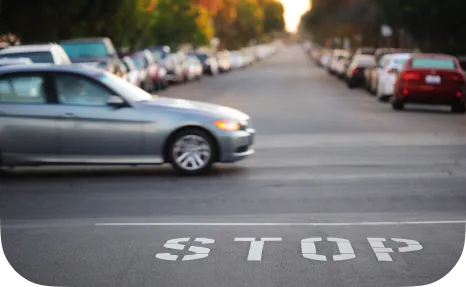
Ignition Interlocks
Your Path to Safer Driving
SAFE (Safety and Advocacy For Empowerment) is a trade organization comprised of the nation’s leading ignition interlock manufacturers that:

- 1
Combine their expertise and experience as one voice to advocate for dramatic reductions in the DUI death and injury toll.
- 2
Provide the latest, credible, factual information on ignition interlock devices to inform policy decisions.
- 3
Influence the debate on state and federal legislation and regulations to ensure they make the most effective use of this lifesaving technology:
- Lobbies Congress for strong provisions in all highway legislation to intelligently address impaired driving issues
- Provides guidance and support to state and federal agencies to develop model state legislation and address implementation and compliance issues.
- Provides technical expertise to state and federal agencies to update ignition interlock technical specifications, and develop model service delivery and reporting standards.
- Collaborates with state and federal agencies and a broad array of traffic safety stakeholders to promote and participate in continuing education workshops for Judges, Probation and Prosecutors.
- Provides technical support on ignition interlocks and best practices to effectively implement a successful interlock program.

Arizona A Case Study
0% Decrease in Fatalities
Drunk driving fatalities decreased by 50 percent from 2007 to 2014.
SAFE supported a campaign to pass an all-offender ignition interlock law in Arizona. States with all-offender ignition interlock laws have experienced substantial annual decreases in drunk driving fatalities. For example, the number of drunk driving fatalities in Arizona have dropped by 50 percent since passing an all-offender ignition interlock law in 2007, according to data from the National Highway Traffic Safety Administration’s (NHTSA) 2014 Fatality Fatal Analysis Reporting System (FARS).
In 2015, based on the FARS data, the decrease in Arizona was 50 percent, illustrating the continued progress of one of the oldest all-offender ignition interlock laws in the U.S. These decreases are unheard of in traffic safety, and similar results in states that don’t have all-offender ignition interlock laws could save thousands of lives.
Arizona is an example of a state that has enacted a strong all-offender law with a compliance-based removal component. Interlocks are also required for refusing an alcohol test.
When Arizona enacted its all-offender ignition interlock law in 2007, 399 people had died as a result of drunk driving the previous year. Seven years later, drunk driving fatalities have been cut in half to 199 in 2014.
In Arizona, offenders who are ordered to use an ignition interlock must show proof that they have complied with the order before they can receive unrestricted driving privileges. In other states, offenders can wait until the order expires and obtain driving privileges without ever using an ignition interlock.
Because of Arizona’s strong law, the state has had some of the highest interlock installation rates in the country. This has undoubtedly contributed to Arizona’s success in reducing drunk driving fatalities by 50 percent in seven years—from 2007 to 2014.


